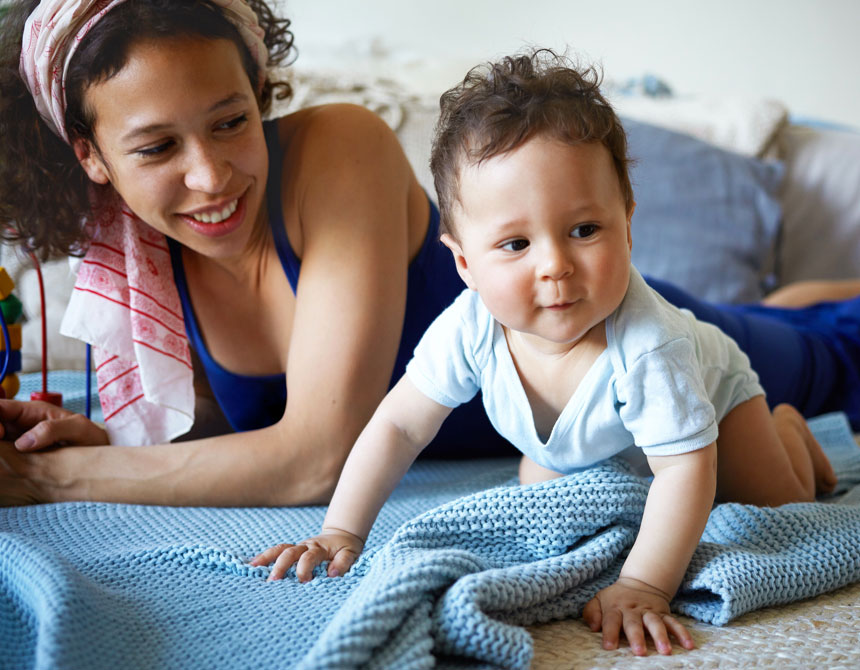Child well visit checklist
Use this checklist to get the most from your child's well visits
Screenings and immunizations protect your child against illness while they’re young. There are ways to make these child well visits even easier for you and baby. Make sure you’re ready to get through each visit by reading this checklist before each appointment.
Before the appointment
-
Arrange transportation (if driving, look at parking options)
-
Dress baby in an outfit that is easy to take off
-
Think about how baby eats, sleeps and behaves
Write down any care questions you may have about the following
-
Feeding and burping
-
Good sleeping positions
-
Skin care and bathing
-
Diaper care
-
Home and car safety
-
Changes in your mood (e.g., feeling down)

Pack a bag with
-
Diapers and wipes
-
Anything you need for nursing (or a ready-to-go bottle)
-
A change of clothes for baby
-
A pacifier or teething ring
-
A blanket
-
Baby’s medicine
-
Toys or distractions for your older child(ren)
-
Insurance card and any forms (e.g., daycare forms)
-
A snack for you and older child(ren)
-
A phone charger
-
Hand sanitizer
-
Face masks for you and older child(ren)
At the appointment
-
Nurse or give baby a bottle after immunizations
- Learn what to ask at your child's well-child visits (pdf)
-
Try to take notes on your care provider’s recommendations
-
Speak openly about mood changes you have felt
-
Talk about how you can speak with your care provider later
After the appointment
-
Schedule baby’s next visit
-
Schedule mother’s postpartum visit (typically 2 to 6 weeks after delivery)
Looking for resources to help support you and your child?
- Most health insurance plans cover early child well visits or provide assistance. Call the number on your insurance card for more details.
- If you are a UnitedHealthcare Community Plan member, you may have access to our Healthy First Steps program, which can help you find a care provider, schedule well-child visits, connect with educational and community resources and more. To get started, call 1-800-599-5985, TTY 711, Monday through Friday, from 8 a.m. to 5 p.m.1
- If you need help getting to an appointment, or getting formula or healthy food, call the number on your insurance card.
- If you are having a hard time getting food or are experiencing unemployment, your care provider may be able to connect you with resources that can help.